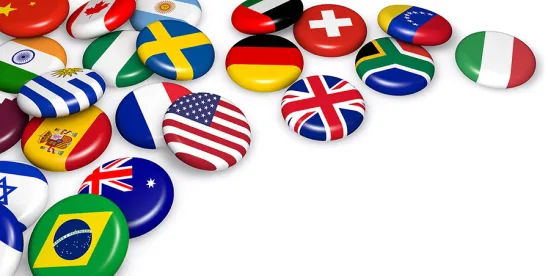The One Big Beautiful Bill (OBBB), which passed on July 3 and is expected to be signed by President Donald Trump by July 4, modifies a number of international tax rules introduced in the Tax Cuts and Jobs Act and creates a new rule to punish counties deemed to be imposing “unfair taxes” on U.S. taxpayers.
GILTI and FDII
With respect to existing rules, the OBBB renames and decreases the deduction rates for Global Intangible Low-Taxed Income (GILTI) and Foreign-Derived Intangible Income (FDII). GILTI is renamed as “Net CFC (Controlled Foreign Corporation) Tested Income” and the deduction under Section 250 is reduced from 50% to 40%. Additionally, the “net deemed tangible income return” deduction is removed from the calculation, meaning the “Net CFC Tested Income” tax will now apply without the 10% of “Qualified Business Asset Investment” (QBAI) reduction.
Similarly, FDII is renamed as “Foreign-Derived Deduction Eligible Income” (FDDEI) and the deduction under Section 250 is decreased from 37.5% to 33.34%. Additionally, two more exceptions from income subject to the FDDEI deduction (from intangible property and property subject to depreciation).
In general, these rate changes are permanent and will result in U.S. taxpayers paying higher tax rates with respect to both Net CFC Tested Income FDDEI. However, the OBBB does raise the foreign tax credit limit related to Net CFC Tested Income from 80% to 90%, which will allow for more foreign tax credits and should lower the effective rate, depending on the foreign taxes paid.
Subpart F
The OBBB also closes a loophole related to Subpart F in recent years. Specifically, the OBBB modified section 951 to provide that a US Shareholder of a CFC must include a pro rata share of the Subpart F income of the CFC for any portion of the year during which they were a US Shareholder. This modifies the previous rule, under which only US Shareholders of a CFC as of the last day of the taxable year were required to include Subpart F income. Certain multinational groups had used the previous rule to shift ownership and avoid paying Subpart F income, so this new change renders this strategy ineffective.
BEAT
The OBBB also increases the Base Erosion Anti-Abuse Tax (BEAT) rate from 10% to 10.5%. The OBBB also reduces the base erosion percentage threshold from 3% to 2% but also exempts certain payments which are subject to an effective foreign income tax of at least 18.9%. While these changes will increase the amount of BEAT collected from certain entities, the threshold for application of BEAT remains high (average of over $500 million gross receipts over three prior years), and the majority of taxpayers will remain unaffected.
No More Section 899 “Revenge Tax”
Finally, earlier drafts of the OBBB included a new Section 899, which would have allowed the Treasury Department to impose additional taxes on foreign governments, entities, or individuals from a country deemed to have “discriminatory” tax policies. This proposal received significant attention and was decried by much of the international business community. After the US engaged in negotiations with the other members of the G7, Section 899 was removed from the draft of the OBBB, and is not included in the final, passed version of the bill.





 />i
/>i
